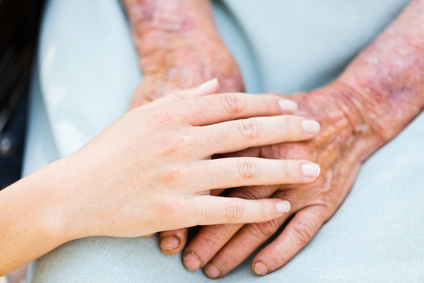 As medical technology allows patients to grow older, we see this technology being used in an inappropriate way to prolong life in a very painful and unsatisfactory way for the patient. The patient’s family is then left with the uncomfortable decision on whether to continue or withdraw care. The most important thing we can do is respect the wishes of those that are ill and if they wish to pass with dignity and in comfort we must make sure that happens. Although death is inevitable there are many paths to reach it.
As medical technology allows patients to grow older, we see this technology being used in an inappropriate way to prolong life in a very painful and unsatisfactory way for the patient. The patient’s family is then left with the uncomfortable decision on whether to continue or withdraw care. The most important thing we can do is respect the wishes of those that are ill and if they wish to pass with dignity and in comfort we must make sure that happens. Although death is inevitable there are many paths to reach it.
One path focuses on quality of life and comfort while allowing the patient to be surrounded by their loved ones in a supportive and caring environment. The other uses medical technology that was created to save the life of someone younger with more resilience to prolong the inevitable often in a painful way. The focus of this essay is to provide guidance through this very difficult process and help provide closure for the family and most importantly quality-of-life and comfort to the patient.
When someone reaches the limits of what medical technology can provide and they are in an end-of-life scenario I have listed several descriptions of how to best navigate the system in the best interest of the patient and their families.
Once someone is in an end-of-life setting or just a chronic illness it is inevitable that at some point their heart or breathing will stop. In-hospital lingo this is known as a code blue. A code blue often results in the patient receiving chest compressions with significant force, electric shocks with a defibrillator, and possible intubation or insertion of a breathing tube. someone in a weakened state at the end of life can possibly suffer broken ribs from these compressions as well as other painful sequelae from the electrical shocks and the intubation. One of the kindest actions a family may take is to make a patient what is called a do not resuscitate/do not intubate or DNR/DNI. What this means is the patient will be spared the sometimes barbaric appearing act and be allowed to pass in comfort and peace with dignity. It should be noted that this does not mean the patient will not receive care for their comfort. It does not mean that they will not be treated. It just means in the final moments of their life that they will be spared the code blue procedure. This is in no way related to euthanasia which is an active intervention to end a patient’s life. With the DNR, you are respecting your loved ones wishes and sparing them in uncomfortable procedure which will likely have the same outcome albeit more painful.
The next issue I would like to address is if of patients or their family wishes to pursue hospice or palliative care. This form of care differs from regular medical care and that the sole goal is to focus on the patient’s comfort whether it be alleviation of pain anxiety, depression or agitation. There will be no further testing that could provide additional pain to the patient and not yield any measurable results in terms of improving their condition. Hospice care can be performed in a hospital, a hospice hospital/facility or at home with a home visiting nurse. Again the goal is focused completely on comfort that means all pain, anxiety, agitation, shortness of breath or difficulty controlling saliva will be addressed. The patient will be allowed to pass in peace and dignity in the presence of their family.
One of the more unfortunate aspects of making someone a do not resuscitate or do not intubate or even place them on hospice care is the tremendous amount of inherent guilt. I think culturally and religiously we are conditioned to believe that we must “maintain life at all costs” even if the quality of life is abysmal. Being the loved one who has to make the final call as to whether to make someone hospice care or cease all medical efforts (including removing the breathing tube) carries an unbelievable weight and guilt. After seeing this happens hundreds of times I can offer this consolation: You are respecting your loved one’s wishes and as much as you wish them to stay around this would be the polar opposite of what they wish to do. Know that in your heart that you are doing what they want, and by doing so you are honoring and celebrating their life.

